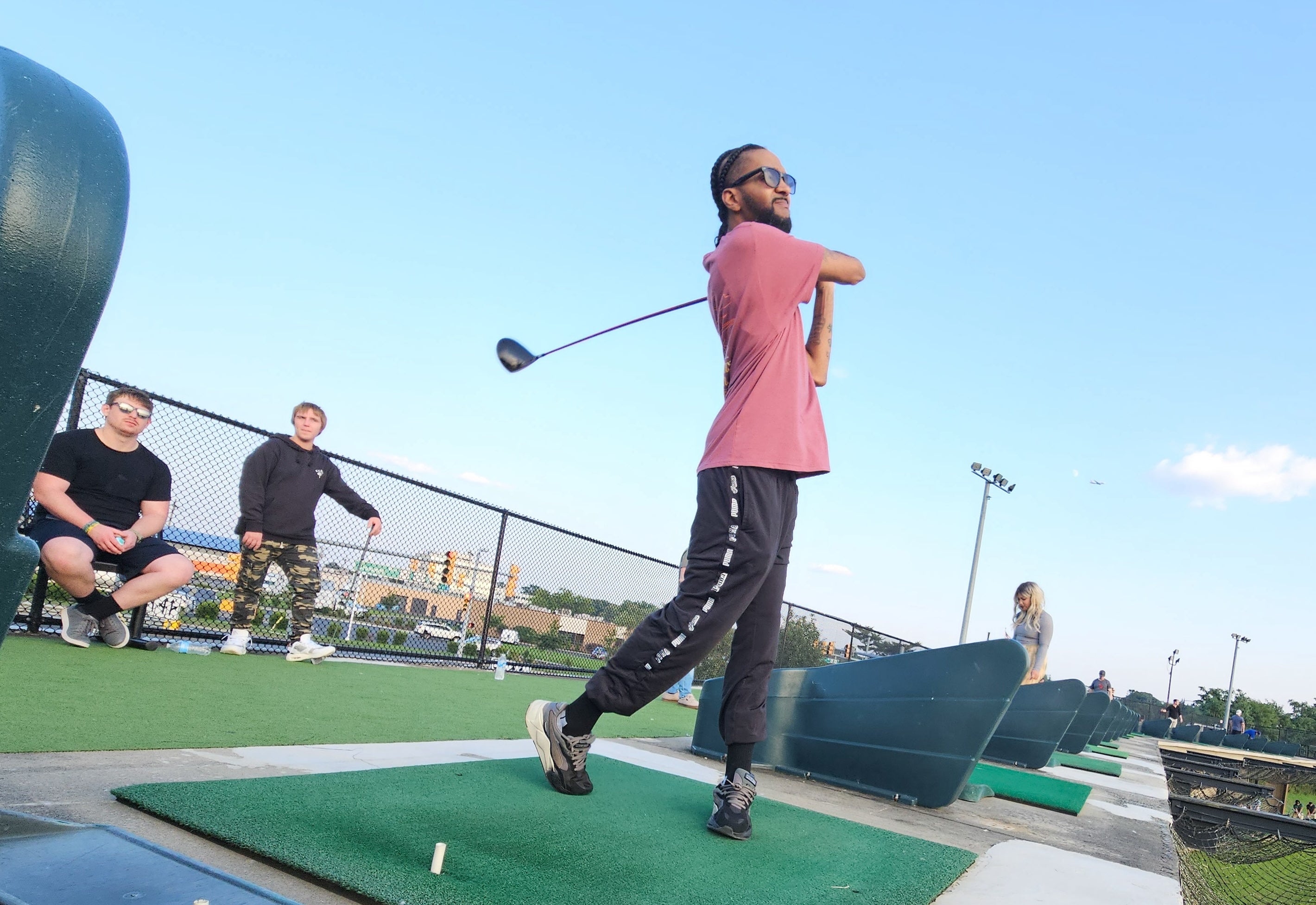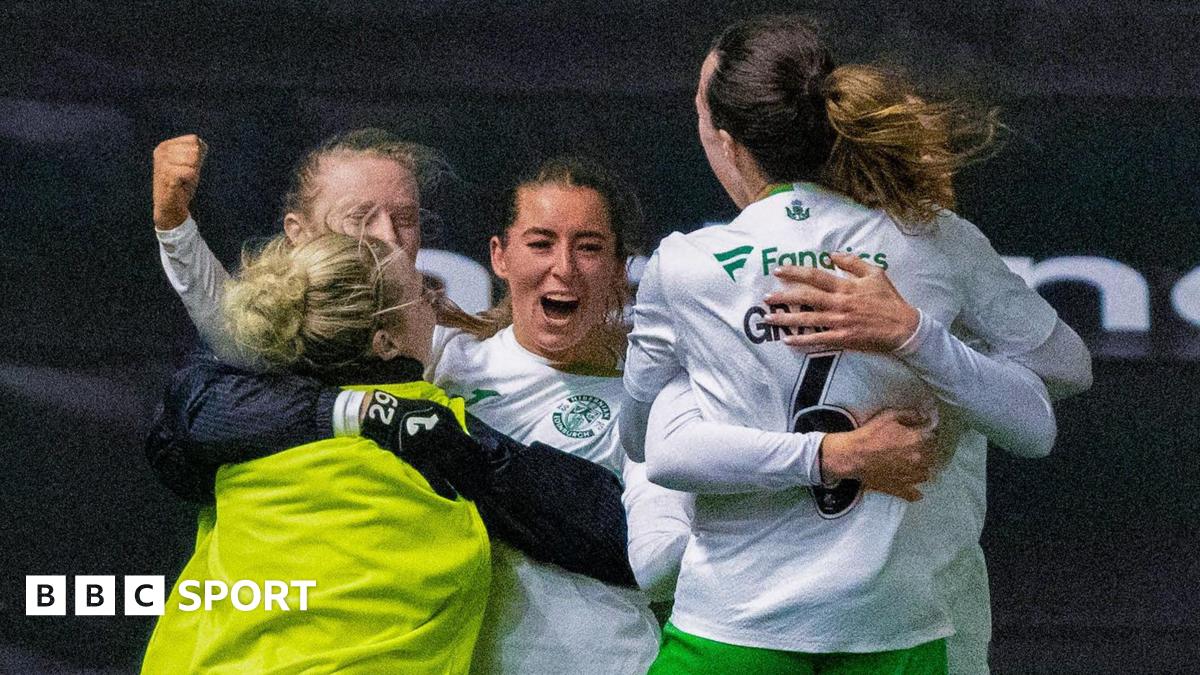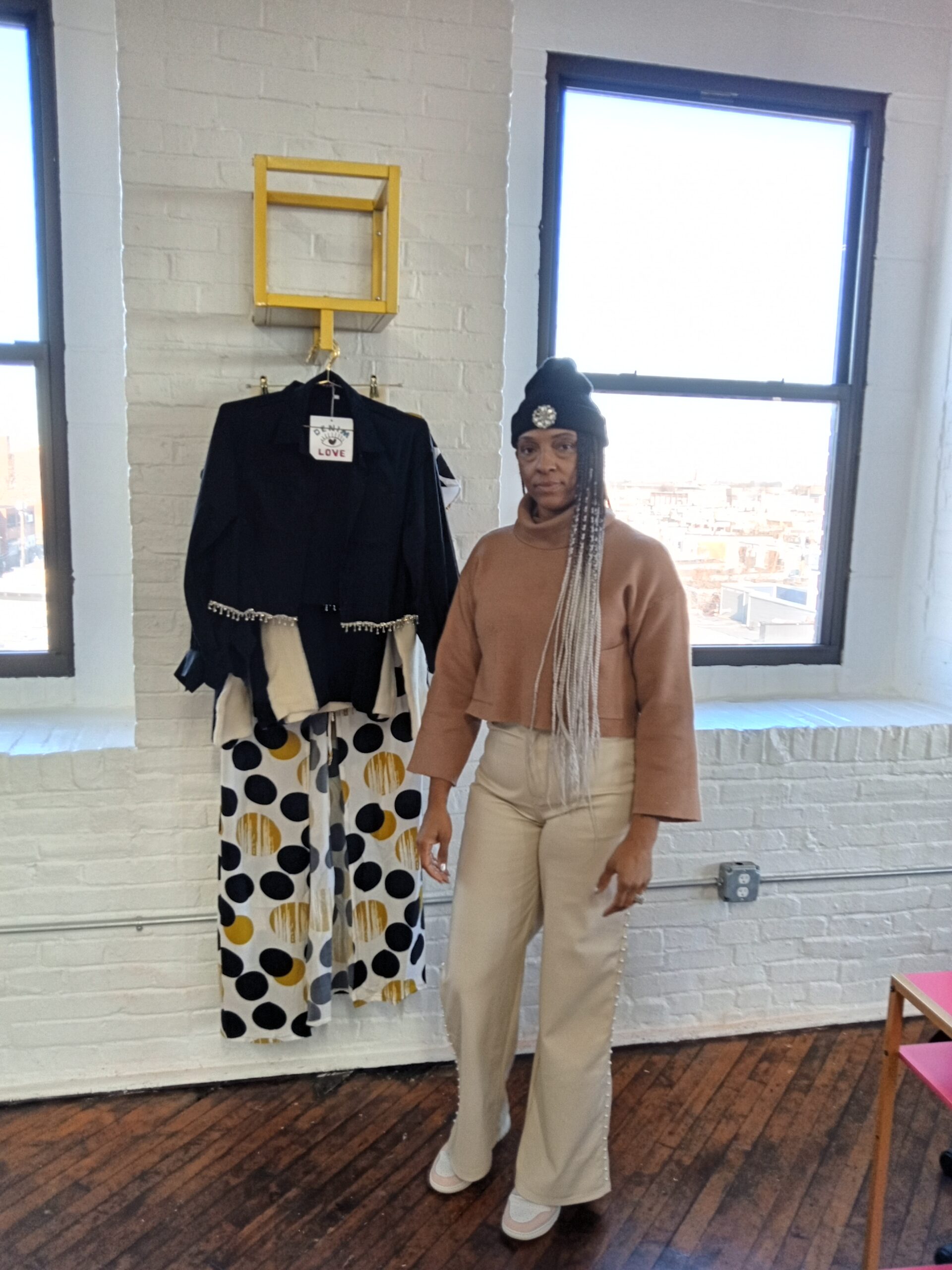Sports
This Camden County program uses sports to engage people in addiction recovery

From Philly and the Pa. suburbs to South Jersey and Delaware, what would you like WHYY News to cover? Let us know!
On the top platform of the Camden County Driving Range, Jeffrey Whiteside swung his club and sent a golf ball high into the sky over the water of the Cooper River.
“Woo!” he exclaimed. “That was a good one.”
Behind him a group of men watched.
“It’s all that Wii golf, right?” one joked and laughed.
“For real, though,” Whiteside said as he quickly teed up another ball.
This fun outing was about more than hitting a few golf balls. Whiteside and others in the group that night are in recovery from substance use and addiction.
The weekly get-togethers are part of Camden County’s REAL Sports program, which uses physical activity as a way to foster a community of support and encouragement for people learning to maintain sobriety and recovery in addiction.
For some, the golf outing counts as a support meeting. Whiteside, who has been in recovery for more than six years and now works as a behavioral health technician at Epiphany Wellness Drug and Alcohol Rehab, said it can be a welcome break from the day-to-day counseling and therapy sessions.
“You can still find anybody to talk to, but at the same time, have some fun and do something competitive and get a little sweat in and wake up a little sore tomorrow,” he said. “It feels good sometimes.”
The county launched the REAL Sports program about a decade ago with golf. Over the years, it has added softball, cornhole and bocce ball. Soon, it will expand to include pickleball and other activities like gardening and horticulture.
But Patty DiRenzo, who works with the Camden County Office of Mental Health and Addiction, said at its core, the program is about creating a safe space for people in recovery to socialize and incorporate a new skill into their routines.
Some participants even use it to show family and friends their progress in recovery, she said.
“To show them, ‘Hey, mom, look! Or dad or brother or sister, look at me, I’m working it, I’m with my recovery community, I’m happy, I’m getting healthy, I’m doing things,’” DiRenzo said. “I think it means a lot to them.”
Many people who participate come from sober living homes, which is a housing model typically for those who are in early addiction recovery from drugs or alcohol. It can be a difficult time for people as they adjust to new routines and ongoing treatment regimens.







